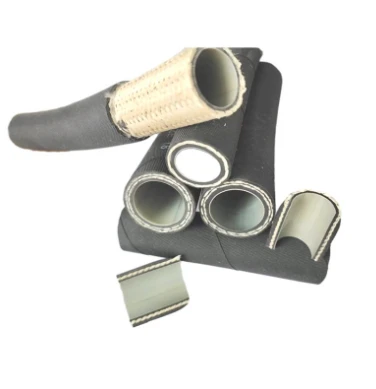brake line truck
Nov . 11, 2024 07:30 Back to list
brake line truck
Understanding Brake Line Systems in Trucks
When it comes to the safety and performance of trucks, one of the most vital components is the brake line system. The brake line, often overlooked in maintenance schedules, plays a crucial role in the effective functioning of a truck's braking mechanism. This article will explore the significance of brake lines and their maintenance, ensuring that truck operators understand their importance for both safety and efficiency.
The Function of Brake Lines
Brake lines are part of the hydraulic braking system in trucks. Their primary function is to channel brake fluid from the master cylinder to the brake calipers or wheel cylinders. When the driver presses the brake pedal, hydraulic pressure is created in the master cylinder, which is then transmitted through the brake lines. This pressure forces the brake pads against the rotors (or brake shoes against the drums), slowing down or stopping the vehicle.
The brake line system typically consists of several components, including steel or plastic lines, fittings, and hoses. The choice of material is essential; steel lines are more durable and resistant to damage from environmental factors, whereas rubber hoses provide flexibility, allowing for movement of the suspension and steering components.
Common Issues and Maintenance
Like any mechanical part, brake lines are susceptible to wear and tear. Common issues include leaks, corrosion, and damage from road debris. A leak can lead to a loss of hydraulic pressure, resulting in decreased braking performance and potential accidents. Therefore, regular inspection of brake lines is essential.
brake line truck

Truck operators should look for signs of wear, such as fraying or swelling in rubber hoses, rust on steel lines, or fluid puddles underneath the vehicle. If any issues are detected, immediate action should be taken. Replacing damaged brake lines is not only a matter of performance but also a critical safety issue.
Importance of Brake Fluid
In addition to the physical condition of the brake lines, the quality of brake fluid is also crucial. Brake fluid is hygroscopic, which means it absorbs moisture over time. This can lead to a reduction in boiling point, which can result in brake fade—a dangerous condition where brakes become less effective after repeated use. Regularly checking and replacing brake fluid according to manufacturer specifications is essential to maintain optimal performance and safety.
Professional Inspections
While truck drivers can perform basic inspections, it is advisable to have brake lines and the entire braking system checked by professionals during routine maintenance. Certified mechanics have the expertise to identify hidden issues and can perform necessary repairs or replacements effectively.
Conclusion
The brake line system in trucks is a fundamental element of vehicle safety that should not be neglected. Regular inspection and maintenance of brake lines, along with the timely replacement of worn components and brake fluid, ensures trucks can operate safely and efficiently. By taking these measures, truck operators can protect not only themselves but also other road users, ultimately contributing to safer roads and highways. Remember, a well-maintained brake system is not just a requirement; it is a commitment to safety on the road.
